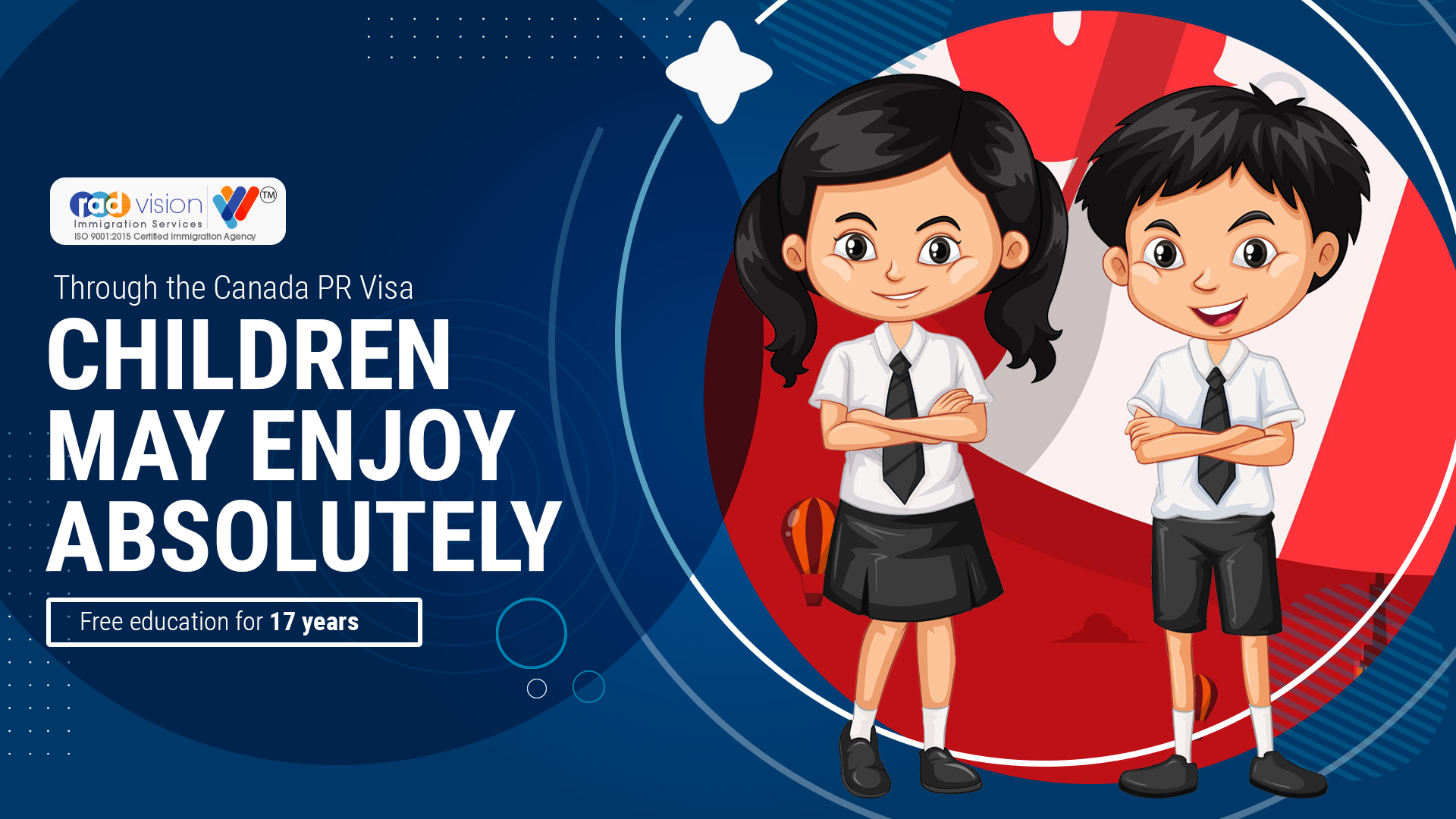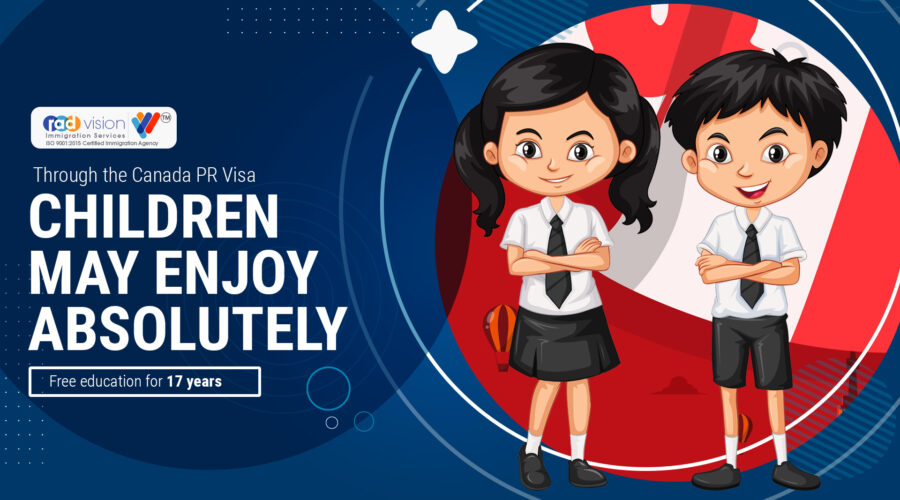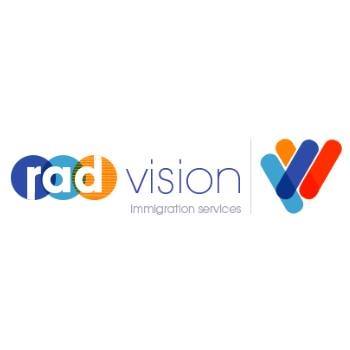
Since education is a provincial responsibility in Canada, and there are many differences between the provinces, the answer to the question that was just asked will only focus on the rules in place in Canada. For your children to be eligible for free education in Canada, boards of education need to decide if they meet the definition of “ordinarily resident” in Section 82 of the School Act. If they do, your children will be eligible for free education. If they do, your kids can go to school for free. The word “ordinarily resident” is not defined anywhere in the Act. But the courts have used it to set standards for determining if a person is a normal resident to get a free public education. This is done to determine whether a person is eligible for free public education.
The courts have decided what it means to be “ordinarily resident” in this situation by looking at whether or not the applicant has:
- a “settled purpose” for moving into the community, and
- a history of living in the area.
- A long enough history of living there, even if they leave sometimes.
To show that they meet these requirements, the applicant must show evidence that can be proven to be objective and show that they have established a regular, habitual way of life in the community that has a sufficient amount of continuity and has stayed the same even though they have been gone for short periods. It is not enough for a person to get free public education just because they moved to the area with the “settled intention” of ensuring their children can attend public school.
School boards can determine why a person or family chooses to live in a certain area. This is done so that no one person or family can take advantage of the law letting students from outside their home province or from other countries pay higher tuition costs.
Even though immigration status is important, it is not the only thing that matters when it comes to regular residency. When deciding if a person is an ordinary resident or not, their immigration status is not the only thing that is taken into account. For Section 82 of the School Act, a person does not have to be a Canadian citizen or a Canada PR of the country to be considered “ordinarily resident” in Canada. For example, people who have applied for the status of convention refugee but haven’t heard back yet and people who have applied for Canada permanent resident card status from within Canada are considered to be ordinarily living in the province of Canada if there are other signs of continuity with the community and residence for a settled purpose other than getting a free public education. On the other hand, someone who only stays in Canada for a short time and doesn’t do anything to become a Canada PR is not considered to be an ordinary resident of Canada. This is because the person does not have a good reason to think they will stay in Canada after their visit.
In Canada, The Following People Can Get A Free Public Education:
- A student living in Canada has asked for refugee status in Canada but hasn’t heard back yet, or is being held in a youth detention centre. A student is being held in a facility for young people in trouble.
- A student with a guardian in the province of Canada, as long as the guardian meets one of the requirements listed below. Guardians must be able to show paperwork that shows they meet the following requirements: have been legally admitted to Canada for temporary residence and are allowed to work for at least one year, are working at least 20 hours per week, or will be working at least that much;
(a). is legally in Canada, has permission to study for a year or more, and is enrolled in a degree or diploma program at a public post-secondary institution in Canada or a degree program at a private post-secondary institution in Canada; or
(b). He is legally in Canada, has permission to study for at least one year, and is enrolled in a degree program at a private post-secondary school in Canada.
(c). has been admitted to Canada legally and is allowed to study for some time equal to or longer than one year, and each of the following is true:
(I). The parent or guardian is enrolled in English as a Second Language (ESL) program at an Education Quality Assurance Designation institution for up to a year (EQA).
(II). An adult learning English as a second language will only be considered a country resident for up to a year. After the first year, the children of ESL students are considered international students, and districts may charge these children international student fees.
(III). The parent or guardian has been accepted into a degree or diploma program at a public university in Canada or a degree program at a private university in Canada.
(iv). Before starting the degree or diploma program, you must finish the English as a Second Language (ESL) program.
- Has been legally admitted and given permission to study in Canada and a multi-year scholarship that pays for tuition and living costs for a post-secondary program that includes both English as a Second Language and a degree program. The scholarship must be used for a program that has both an English as a Second Language (ESL) and a degree program. The English as a Second Language (ESL) part must be done at a school designated as having Education Quality Assurance (EQA).
- Has a legal right to live in Canada and is currently participating in a teacher exchange program with a public school in Canada.
- Is carrying out official duties as allowed by the Visiting Forces Act or as an accredited diplomatic agent, pre-clearance officer, consular officer, or official representative of a foreign government in Canada with a consular post in Canada.
Procedures
- Under section 82 of the School Act, students who live or are considered to live in Canada are eligible for provincial funding. Boards cannot charge these student fees unless they follow section 82 of the School Act. Section 82 of the School Act also says that boards can’t charge fees to students who get money from the province. Other students who meet the requirements in this policy will be able to get help from the Ministry, and boards should not charge tuition fees to these students.
- Students who don’t meet the requirements to get money from the provincial operating grant must write on Form 1701 that they are “students from out of province or from abroad.” These students will not be able to get help with their education from the provincial government.
- When it comes to exchanging students, boards only get money for the typical local student who hasn’t finished high school. In a one-in, one-out exchange, the non-resident student who hasn’t finished high school fills in for the funded resident student when that student is sick or out of town.
- The student’s file must have a note about the paperwork used to show that they were eligible for funding. Part 8 of the School Act says that boards of education must keep accounts and do audits. Also, Section 165 of the Act says that if auditors from the Ministry ask for the file, it must be given to them.
- It is up to the boards of education to ensure that all of the requirements to get money from the province are met. If students who don’t qualify for funding are claimed to get money, the boards will have to pay the Ministry back.
Conclusion
Our Canada visa services, has one goal: to make it easier for people to move and migrate Canada so that everyone can live a global lifestyle. We can help you to get Canada PR visa from India. Our staff is made up of very driven migration specialists who want to make the process of moving as easy and stress-free as possible for everyone. People who want to move to Canada can use our Canada Immigration Consultants in Delhi, who covers the whole process from start to finish.
About Radvision World Team
Radvision World Consultancy is an ISO 9001: 2015 certified immigration agency in Delhi, India. We’re one of the best immigration services provider in Delhi, specializes in offering IMMIGRATION and VISA consulting services for the countries such as Australia, Canada, Hong Kong, Germany, UK, USA, Dubai, Singapore, Malaysia and much more.
Twitter •


